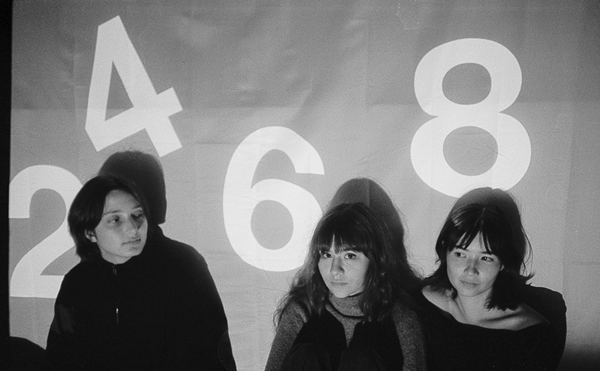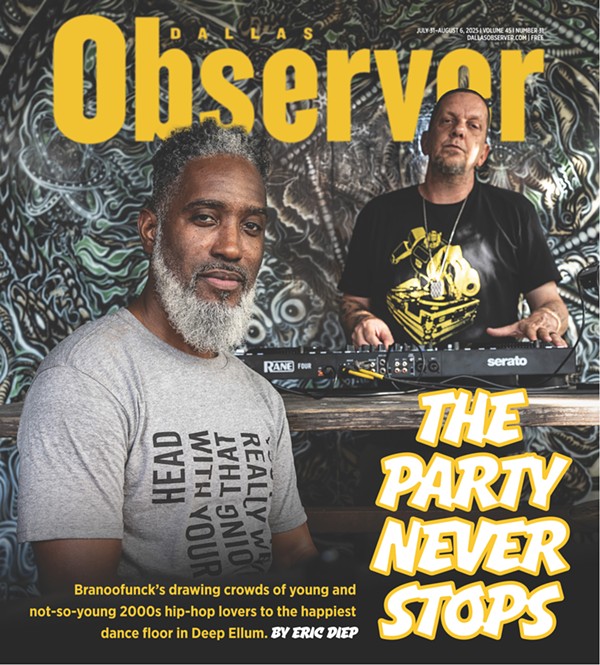Leon Bridges is coming home this weekend, but good luck getting into the show. Either of them. The Fort Worth phenom, one of the most buzzed-about artists of 2015 since he signed with Columbia Records last Christmas, is playing two shows at Scat Jazz Lounge on Saturday night, and to say they’re sold out is an understatement. Tickets on StubHub start at $350.
Bridges is one of the biggest feel-good stories of the year so far, but that story wouldn’t have been possible without the help of an unfinished recording studio on the other side of Interstate 30 from Scat, right next door to Shipping & Receiving.
Niles City Sound had just started operating when Bridges recorded Coming Home there in August, and it’s been functioning in a makeshift state ever since. The album gets released on Monday, but Niles won’t officially open until October. When it does, it could be an absolute game-changer for the Dallas-Fort Worth music scene — Bridges may just be the beginning.
The studio is the brainchild of White Denim members and North Texas natives Josh Block and Austin Jenkins. A couple years ago the pair, who had recently moved back to the area from Austin, sat down at David’s Barbeque in Pantego to discuss building a studio.
“We wanted to do a studio that was straight for broadcast,” says Jenkins. “Akin to Big D Jamboree or the Louisiana Hayride.” The idea was to have a small storefront studio, in the tradition of Sun Recording Studio, where people could walk in and watch a live recording session, with the recordings going straight to a radio station.
Chris Vivion is White Denim’s tour manager. “We were missing that organized studio manager,” says Block. “Josh and I would sit for hours and try to come up with business plans,” says Jenkins. “We all have strong skills,” adds Vivion. But their respective skills are very different. The three are partners, with Vivion gravitating toward the role as manager, Jenkins as producer and A&R, and Block as creative and technical director.
They were seeking sponsorships to build a studio when Jenkins had the idea to record something that would represent what they were trying to do and help get the ball rolling. Enter Bridges. Jenkins saw him perform at Magnolia Motor Lounge last August and was stunned. Some of the songs were finished, others weren’t. But Jenkins realized Bridges’ music fell perfectly in line with their vision.
Before the end of the month, while they were still moving gear into the space, Bridges was recording in the newly acquired building. It was a perfect storm.
They had considered renting the Rose Marine Theater and looked at a place above the Stockyards Hotel. But they ultimately decided the space next to Shipping & Receiving was right. It’s 14,000 square feet and used to house a golf club manufacturer. The warehouse was mostly empty, but some artifacts from the past remained. “There was a putting green in there that was a foot higher than the rest of the ground,” says Vivion. “Someone spent a lot of money on it. It worked pretty well setting up on that.”
Block and Jenkins had collected lots of old recording gear over the years and were ready to start trying it out, including two consoles from 1948, a 1962 tape machine from San Francisco’s Warfield Theatre that was once owned by the Grateful Dead, and an 8-track from 1968.
They wanted to make music like it was the 1960s, and they had no intention of imitating the sound with newer gear. “A lot of people will tell you they are doing ’60s-style music,” says Block. “But if you walk into their studio, absolutely no piece of gear they have is actually from the ’60s. If someone has 16-track or more capability, they’re not doing ’60s music.” That attention to detail and authenticity ultimately played a crucial role in Bridges’ introduction to the world, and it has already become his trademark.
With a small track count, Niles City Sound basically records music live, which is what first excited Jenkins and Block about studio sessions for radio broadcast. “We wanted to make this as direct and intentional as possible,” says Jenkins. “These are some severe limitations for a recording studio.” But the benefit is that it forces musicians to play together and learn the music. Headphones are not used while tracking. If you are playing too loudly behind someone, you have to turn your instrument down.
During the initial recording sessions, Bridges cut 10 tracks in four days. Then White Denim went on tour. They kept in touch with Bridges and jumped right back into recording when the tour ended. Eventually they had recorded his entire debut album on 8-tracks. “The really successful music right now is sampling music that was made that way,” Block says with a laugh. “Everybody else is making music in extremely controlled ways and it sounds really bad.” Two more artists have used the studio since then, but their names are still under wraps.
Indeed, the team at Niles is keeping much of their business, including the space itself, hush-hush. But once it’s finished, it will be stunning. The room is huge, with 100-year-old oak herringbone floors and an elevated control room. The studio is being acoustically engineered, but the bones of the space will remain the same. There is no isolation, with the exception of a storage area below the stairs leading up to the control room, in case someone really needs to “wuss out.” But they find it odd that other studios are diffused and isolated. “The singer has to like the people they are in the room with here,” says Block.
Niles has maintained its close ties with Bridges since his deal with Columbia. Vivion is now his tour manager and Jenkins and Block play in his touring band. They have been touring steadily since January and will hit the road again later this month. In Niles, Fort Worth is getting a studio that could reasonably draw comparisons with such icons as Trident, RCA Studio B or Capitol. Jenkins is cautiously optimistic. “I think it could be a nice way to showcase what is already happening here in so many different sectors,” he says.
Considering how well they did on their first try, the odds seem to be in their favor.
Follow @DC9AtNight

Audio By Carbonatix
[
{
"name": "GPT - Billboard - Slot Inline - Content - Labeled - No Desktop",
"component": "21721571",
"insertPoint": "2",
"requiredCountToDisplay": "2"
},{
"name": "STN Player - Float - Mobile Only ",
"component": "21861991",
"insertPoint": "2",
"requiredCountToDisplay": "2"
},{
"name": "Editor Picks",
"component": "17105533",
"insertPoint": "4",
"requiredCountToDisplay": "1"
},{
"name": "Inline Links",
"component": "18349797",
"insertPoint": "8th",
"startingPoint": 8,
"requiredCountToDisplay": "7",
"maxInsertions": 25
},{
"name": "GPT - 2x Rectangles Desktop, Tower on Mobile - Labeled",
"component": "22608066",
"insertPoint": "8th",
"startingPoint": 8,
"requiredCountToDisplay": "7",
"maxInsertions": 25
},{
"name": "Inline Links",
"component": "18349797",
"insertPoint": "8th",
"startingPoint": 12,
"requiredCountToDisplay": "11",
"maxInsertions": 25
},{
"name": "GPT - Leaderboard to Tower - Slot Auto-select - Labeled",
"component": "17357520",
"insertPoint": "8th",
"startingPoint": 12,
"requiredCountToDisplay": "11",
"maxInsertions": 25
}
]











